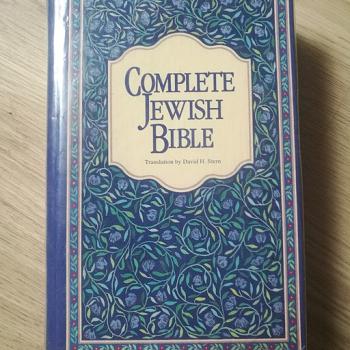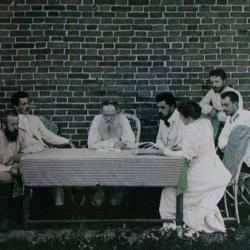Sphere of action marks the difference between Mormon feminism and the wider feminist movement, and from a Mormon perspective that's a very big difference indeed. It's one thing to apply feminism to government of the people, by the people, for the people. It's quite another to apply it to the kingdom of God on the earth. (Notably, the only feminists whom Mormons are likely to cheer -- the suffragettes -- targeted the legislature, not the church.) When it comes to secular politics, Mormons agree that it's kosher to stage protests, hold marches, sign petitions, write letters, mobilize grassroots forces, and make bold calls to action. In short, if our conscience dictates we can, and should, fight city hall. But what about the Quorum of the Twelve?
I hasten to add that most Mormon feminists are duly sensitive to this tension (see, for example, the Exponent Blog's posts on "good" vs. "bad" feminists, and the connection between feminist style and continuing activity in the Church). And even motion-oriented groups like WAVE don't seem interested in fighting anyone, especially priesthood leaders. The goal of their first "call to action" is a compilation of quotes by authorities and other prominent members of the church that highlight gender equity in Mormonism. Hardly a revolution -- in fact, one Mormon feminist from a prior wave has criticized the group as too "nice." If such moderation becomes the new norm, which seems likely based on current trends, boat-rocking feminist activism in the Church[8] may be a thing of the past.
But no matter how reasonable the aims and how gentle the approach, any overtly feminist gathering will raise suspicion among the leaders and mainstream members of the Church. It's telling that Claudia Bushman, a veteran of the movement, advises the new wave of activists that they'll "get more attention if they do not confront, but talk quietly" -- a decidedly unfeminist tactic. Which brings us to the core conflict in Mormon feminism: by definition, feminists challenge male authority; and by definition, Mormons defer to it.
This conflict causes an obvious dilemma for Mormon feminists -- resist patriarchy and you're a bad Mormon, embrace patriarchy and you're a bad feminist. It also leads to frequent and frustrating conversational disconnects between Mormon feminists and other Mormons regarding the dynamics of authority in the Church. Non-feminists point out that all Latter-day Saints, male and female, are expected to sustain and obey priesthood leaders without resistance; therefore, this can't be a gender issue. Feminists counter that since every Mormon authority figure is male, this can't not be a gender issue. And round and round it goes, opposite arguments centering on the same point: in a patriarchal church, it's impossible to separate women's submission to man from women's submission to God.
Given the conundrum, and the highly individual methods of managing it, Mormon feminism is practiced on a spectrum so wide that some fellow feminists hardly seem to be fellows (to wit, compare this Mormon feminist manifesto to this one). [9] "There's no right way to be a Mormon feminist," reads the WAVE website, which nonetheless offers a tentative list of points of agreement. Joanna Brooks likewise notes that while Mormon feminists used to be centralized and easily identified, today's wave is a much more diverse movement. "We're everywhere," she says, "and we have many different approaches about how to make our tradition work for us."
These varying approaches reflect the two versions of gender equality that divide feminist philosophy: equality through integration and equality through empowering separation. Joanna herself envisions a church structure that reflects the dual-gender leadership of a family and asks, "What if our church incorporated, in its basic decision making, the talents and resources of women who have lots of experience, lots of education, even in the business world?" Likewise, WAVE sets aside the matter of priesthood ordination for women and invites Mormons to "talk about other ways we can bring women's talents into the operational chain of command." On the other hand, Claudia Bushman regards the Mormon army of devoted male workers as one of its "great glories" and says, "I don't think we should try to infiltrate the priesthood [referring to church administration]. I think we should build up organizations of our own, build up collectives, build groups of people where we work together on projects that empower everyone involved."




